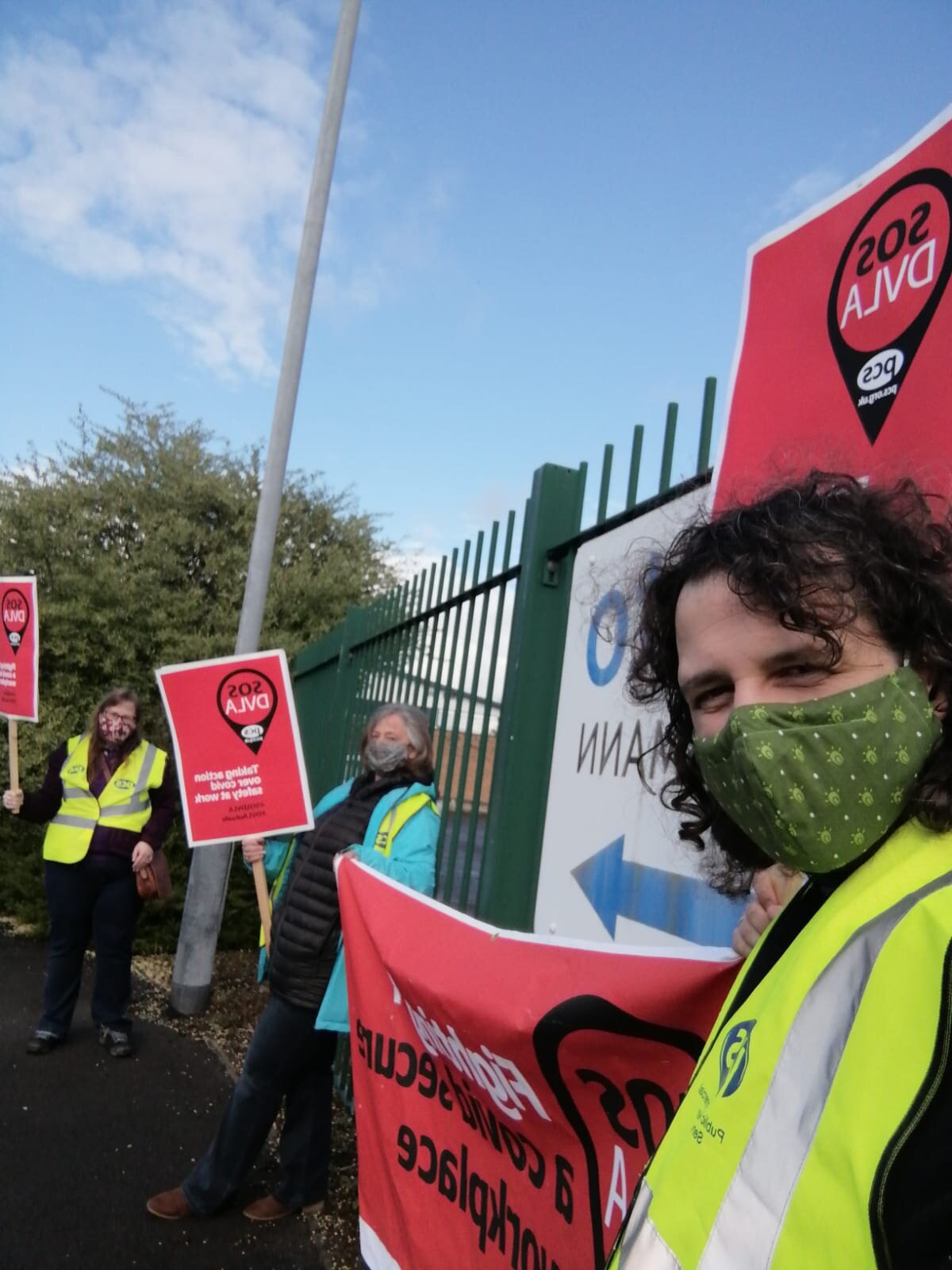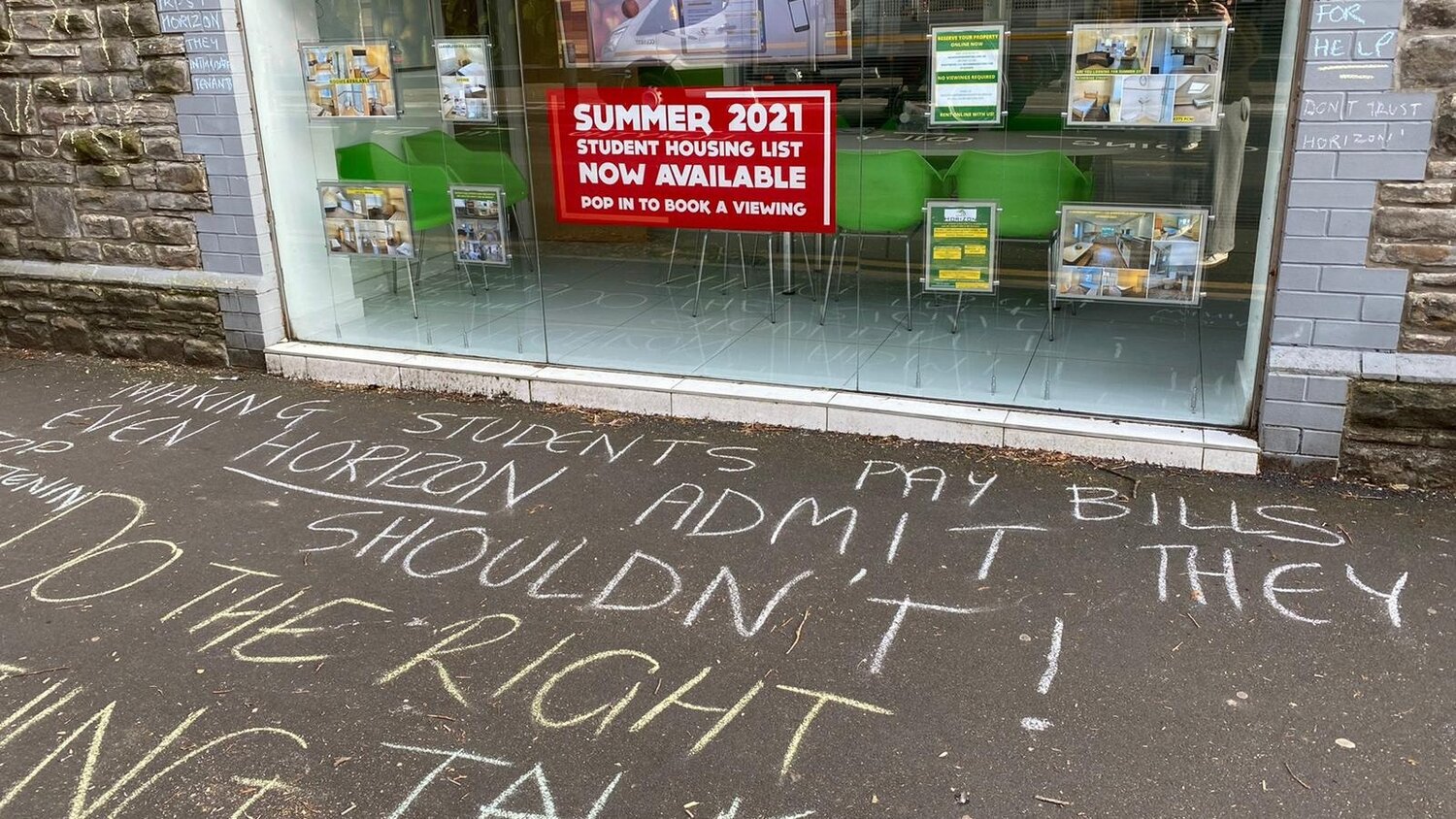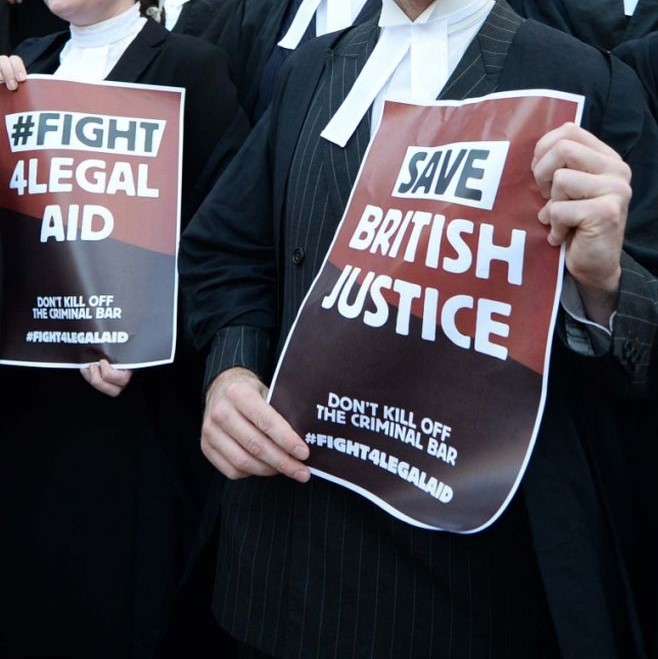
DVLA Strike Enters Its Sixth Day, More Workers Join the Union in Major Fight Over Safety
Workers on the picket line. Photo via PCS DVLA Branch on Twitter.
DVLA workers in the PCS union began their second round of strikes yesterday, in a major battle over workplace safety.
Bosses at the site are refusing to allow more people to work from home, meaning around 2,000 staff are still going into offices every single day. In the initial lockdown, the union says that only around 250 went in to carry out essential tasks.
There have been some 600 cases of Covid since October last years and an official workplace outbreak was declared in December, the largest anywhere in Britain. One worker at the site has also died after catching Coronavirus.
But despite this, management has continued to make staff go into work on-site. Earlier in the year, members of the PCS union voted overwhelmingly to strike. Workers today began their sixth day of the strike, having already walked out for four consecutive days at the beginning of April.
Meanwhile, PCS has reported that more workers have joined the union during the dispute, taking their membership at the DVLA to over 3,500. Fellow union Unite have also donated £20,000 to their strike fund whilst MPs, including former Shadow Chancellor John McDonell, have pledged solidarity with workers.
“DVLA management continues to do everything it can to undermine the strike, from altering wages to a new low today of offering £5 a day – from public funds – to those going to work as an incentive,” the union said yesterday. “Our resolve will not be broken, and the support of the members, and those new joiners, continue to inspire our determination and confidence”
Workers ignored over hundreds of desks being too close together.
Sarah Evans, who works at the DVLA and is chair of the union branch, spoke to voice.wales during the first round of strikes, She said that workers were striking because bosses weren’t taking their health seriously.
“Since September, we have had 613 positive cases and sadly also lost a member of staff to Covid,” she said. “Despite this, and the DVLA having the biggest workplace outbreak in the UK, management have still refused to significantly reduce numbers and we still have 2,000 members of staff attending the office every day.”
She said that workers were being forced to lose pay in order “to keep themselves and their family safe.”
“The most recent example of the DVLA failing to keep its staff safe is that 331 desks were taken out of use because they were too close together,” Sarah said. “Staff were being forced to sit in work for eight hours a day on desks that broke social distancing guidelines.”
She said that no apology had been offered to the affected staff, only a statement from management saying that the 331 desks had been removed following changing advice from Public Health Wales. But Sarah says that the advice did not change, and DVLA bosses repeatedly ignored requests from the union raising the issue. It was only when an environmental health inspector measured the desks that they were removed.
The ongoing Covid threat
Even though Wales is vaccinating against Covid at a faster rate than other countries, the danger of not taking the virus seriously and allowing new variants to spread has been brought home by the catastrophic scenes in India.
Experts warn that even in places like Wales, where the virus is currently more under control, it would be reckless to allow it to spread and mutate via unnecessary contact, such as work that can be done from home.
On Radio 4 on Tuesday, Adam Kucharski, an epidemiologist at the London School of Hygiene and Tropical Medicine, said that countries like Wales “can have vaccines that are working well domestically” but that new “variants emerging globally” present an “ongoing threat.”
DVLA workers on strike say they are being put at unnecessary risk, and that they have a higher chance of catching the virus than those working from home. And even if they don’t fall badly ill, they and others in who they’ve been in contact with in the office will still have to isolate, meaning they miss out on much needed social contact after months of lockdown.
The current round of strikes will end on Friday 7th May, you can donate to the strike fund here.


